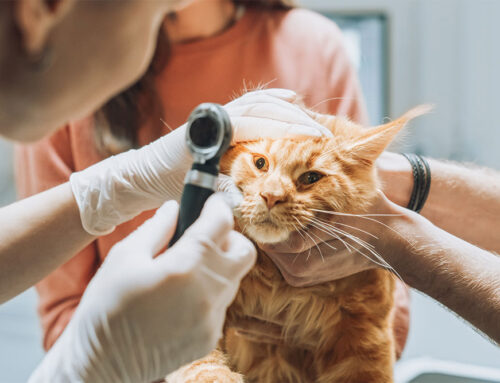Veterinary bills can be significant if your pet becomes ill or experiences a veterinary emergency, and investing in a pet insurance policy can mitigate these costs. Our team at Livingston Veterinary Hospital wants to provide information about pet insurance, to help you decide if you and your pet can benefit.
Pet insurance can save you money
Technological advances in veterinary medicine have led to increases in the cost of care, because veterinarians must address the higher costs associated with the equipment, facilities, staffing needs, and training required to provide these higher-quality services. If your pet gets sick or injured, their veterinary bill can significantly impact your pocket book. When you invest in a pet insurance policy, you are reimbursed for the covered cost after meeting an initial deductible, potentially saving you several thousands of dollars, depending on your pet’s condition.
Pet insurance allows you to make decisions based on your pet’s needs
When faced with treatment options for your ailing pet, you want to make the decision that is best for your pet, as opposed to the one you can afford. If your pet is insured and needs surgery, you won’t have to worry where you will get the money to pay for the costly procedure. You can authorize the surgery without hesitation, knowing you are doing what is best for your pet without bankrupting your family.
Pet insurance allows your pet to receive the appropriate diagnostics
Veterinarians have many admirable skills, but they aren’t psychic. This means that diagnostics are usually necessary to determine the appropriate treatment. If monetary issues are a concern, diagnostics tests are sometimes bypassed, so you have more money to spend on actual treatment. However, without the vital information from the proper diagnostics, an incorrect treatment plan may be ordered, delaying the needed therapeutic care for your pet.
Pet insurance allows your pet to receive better care
Ideally, a veterinarian should fully evaluate your pet at least once a year, administer your pet’s yearly vaccinations and year-round parasite preventive, and regularly provide professional veterinary dental cleanings. These costs can mount up quickly, reaching amounts around $700 to $1,500 a year. Insuring your pet can help cover some of these expenses and ensure your pet gets the veterinary care they need, which will help prevent serious illness in the future.
Pet insurance prevents economic euthanasia
Sadly, many pets are euthanized when their owner can’t afford veterinary care. If the treatment is too expensive, euthanizing the pet is sometimes the only option, to prevent unnecessary pain and suffering. Insuring your pet can save their life in a situation where your choice is costly treatment or euthanasia. No owner wants to be in a position where finances stand in the way of saving their pet’s life, and pet insurance can provide you peace of mind, preventing you from being in that situation.
Pet insurance coverage depends on the plan you choose
Most insurance companies provide several plans for pets, most commonly including:
- Accident coverage — This type of plan is the most popular policy purchased by pet owners, and covers issues such as broken bones, bite wounds, poisoning, foreign object ingestion, torn ligaments, eye trauma, and most other injuries. These issues can be extremely costly before your pet is fully healed, and while no one can plan for an accident, an accident insurance policy ensures your pet will receive the care they need if an incident occurs.
- Illness coverage — This type of plan covers conditions such as urinary tract infections, cancer, arthritis, skin and ear infections, vomiting, diarrhea, and parasites. Policies typically cover diagnostics and treatment. However, many companies don’t provide coverage for older pets, and may not cover certain breeds who are predisposed to a certain condition. For instance, German shepherds are at higher risk for hip dysplasia, so this condition may be excluded from coverage. In addition, brachycephalic breeds, such as bulldogs and pugs, commonly have respiratory issues, which many companies may not cover in these breeds.
- Wellness coverage — This type of plan is typically considered the optimal coverage, and covers care such as annual wellness exams, vaccinations, routine blood work, heartworm testing, fecal checks, spay and neuter procedures, dental cleanings, and flea, tick, and heartworm prevention. Wellness care is important to prevent and catch health issues early in your pet, which can save you money in the future. Wellness coverage makes providing this care for your pet easy and convenient.
Pet insurance should be obtained early in your pet’s life

The younger your pet when you obtain a policy, the cheaper the pet insurance, and you may not be able to get the coverage you want if you wait until your pet is older. In addition, your older pet may develop a pre-existing condition that the insurance company will exclude on their policy. Obtaining coverage for your pet is best done when they are young and healthy.
Ensure your pet receives the veterinary care they need and deserve by obtaining a pet insurance policy as soon as possible. If your pet is due for a wellness appointment, contact our team at Livingston Veterinary Hospital, so we can ensure they stay happy and healthy.







Leave A Comment